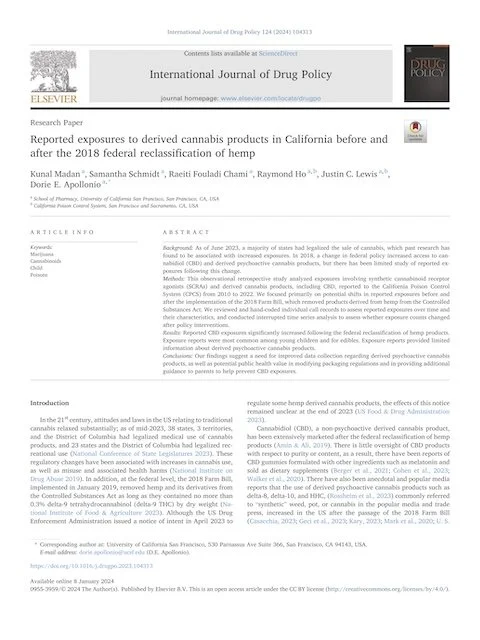Reported exposures to derived cannabis products in California before and after the 2018 federal reclassification of hemp
By Kunal Madan , Samantha Schmidt , Raeiti Fouladi Chami , Raymond Ho , Justin C. Lewis , Dorie E. Apollonio
Background: As of June 2023, a majority of states had legalized the sale of cannabis, which past research has found to be associated with increased exposures. In 2018, a change in federal policy increased access to cannabidiol (CBD) and derived psychoactive cannabis products, but there has been limited study of reported exposures following this change. Methods: This observational retrospective study analyzed exposures involving synthetic cannabinoid receptor agonists (SCRAs) and derived cannabis products, including CBD, reported to the California Poison Control System (CPCS) from 2010 to 2022. We focused primarily on potential shifts in reported exposures before and after the implementation of the 2018 Farm Bill, which removed products derived from hemp from the Controlled Substances Act. We reviewed and hand-coded individual call records to assess reported exposures over time and their characteristics, and conducted interrupted time series analysis to assess whether exposure counts changed after policy interventions. Results: Reported CBD exposures significantly increased following the federal reclassification of hemp products. Exposure reports were most common among young children and for edibles. Exposure reports provided limited information about derived psychoactive cannabis products. Conclusions: Our findings suggest a need for improved data collection regarding derived psychoactive cannabis products, as well as potential public health value in modifying packaging regulations and in providing additional guidance to parents to help prevent CBD exposures.
International Journal of Drug Policy Volume 124, February 2024, 104313


